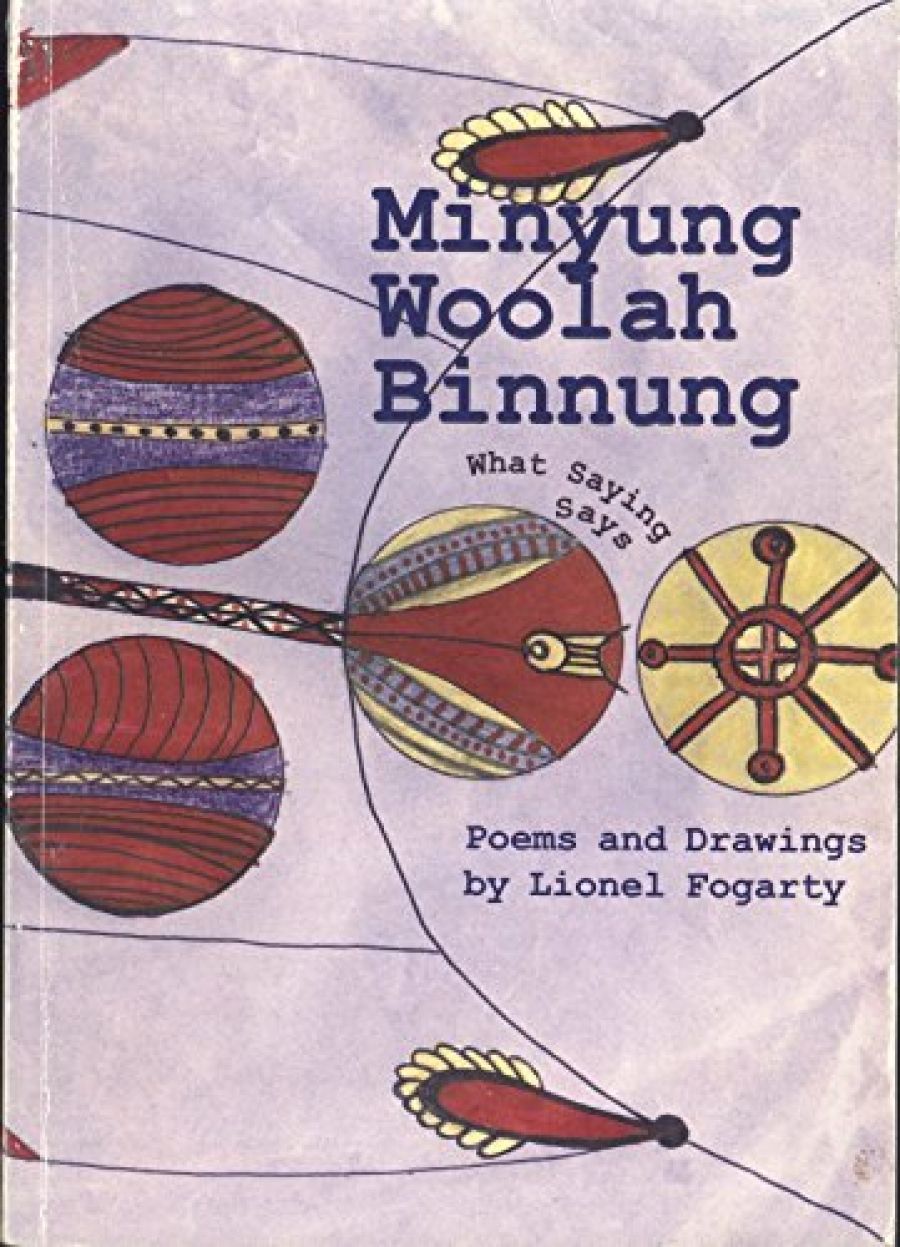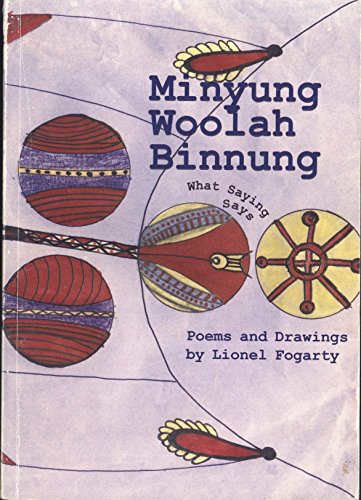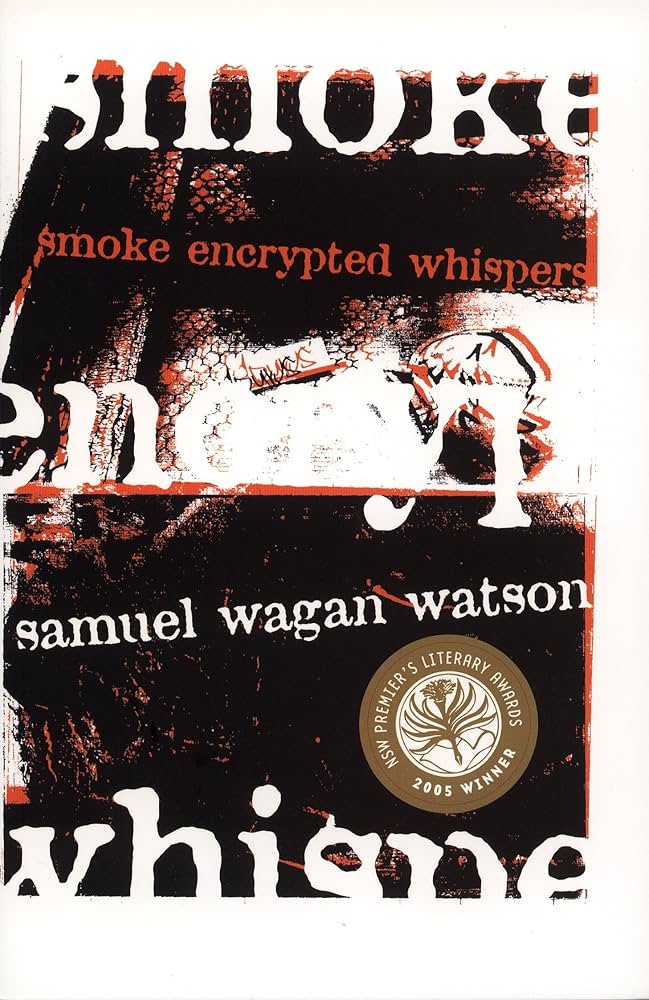
- Free Article: No
- Contents Category: Poetry
- Review Article: Yes
- Article Title: A Radical Tonic
- Online Only: No
- Custom Highlight Text:
These two exceptional books should be sent to every household in Australia free of charge. They would be a perfect curative after the federal election. The campaigns of the conventional parties demonstrated how far indigenous Australia has fallen off the political radar screen. Fortunately, the independent creative work of Aboriginal thinkers, writers and artists continues to set high standards and often leads the way in the exploration of social, political and philosophical issues that many in mainstream culture are still unable to face.
- Book 1 Title: Minyung Woolah Binnung
- Book 1 Subtitle: What Saying Says
- Book 1 Biblio: Keeaira Press, $20pb, 64pp
- Book 1 Cover Small (400 x 600):

- Book 1 Cover (800 x 1200):

- Book 2 Title: Smoke Encrypted Whispers
- Book 2 Biblio: UQP, $22.95pb, 180pp
- Book 2 Cover Small (400 x 600):

- Book 2 Cover (800 x 1200):

Fogarty’s Minyung Woolah Binnung: What Saying Says is a profoundly important book. As a statement of cultural self-determination and authorial autonomy, it is hurled like a cognitive grenade across the picket fences of conservative culture. As a work of art, it synthesises black political consciousness with local and international trends in experimental literature and art practice. Fogarty’s new poems remind me of the black activist poetics of 1960s New York City, the precursor ‘spiels’ and early rap of poet–revolutionaries such as the Last Poets, Umar bin Hassan and Abiodun Oyewole. Fogarty’s genius is to adapt this energy to a contemporary indigenous Australian voice. His densely performative rhythms, almost immediate internal and enjambed rhymes and explicit political drive draw on the in-your-face cadences of hard-core hip hop and Aboriginal English. You can hear Public Enemy or the Disposable Heroes of Hiphoprisy in his poetry.
Fogarty’s language has frequently been described as confusing, untranslatable or unintelligible. In fact, it is intensely lyrical. In his introduction, Fogarty writes that: ‘The reason why I’m a poet is so I can perform. Whatever I write, I have to perform it, and so that others can also perform my writings!’ Wonderfully titled poems such as ‘I sus I’, ‘Bina Open Hearts Precedents’, ‘War Polluted Criticisms World’ and ‘Slogan Groans’ are performance scripts in which condensed lyrical control and supercharged political consciousness take aim at a variety of Westernisms.
Fogarty poses a fundamentally organic relationship between self, culture, politics and art practice. This is echoed throughout the book by stimulating drawings that synthesise a type of post-representational avant-gardism with distinct-ive symbolic content. Like the poems, Fogarty’s visual works spring from a radical sensitivity to encultured space. Relationship is primary. Anthropomorphic figures multiply across pages into any number of organic utterances, their lines, circles and patterns worked and reworked as territories of sensual connection. The drawings produce what Fogarty describes as ‘more of a thinking feeling’. One of the book’s successes is that the artist’s thoughts and feelings are amplified by the concentrated interplay between visual and linguistic materials.
Samuel Wagan Watson’s smoke encrypted whispers is the work of an exceptionally talented younger poet. The book assembles Watson’s preferred oeuvre, including of muse, meandering and midnight, boondall wetlands (2000), hotel bone (2001), the powerful road poems of itinerant blues (2002) and a series of compelling new prose poems gathered under the volume’s title. Watson shares Fogarty’s political consciousness, but his style is completely different – more Johnny Cash than 50 Cent. His voice is romantic, self-ironising and edgy. He has perfected the suburban lyrical vernacular in its postmodern, satirical mode, and has adapted it to a metro-Aboriginal sensibility, in turns sharp and witty, emotionally raw or comical: ‘another late Thursday night … and I’m wondering / why I bothered to use expensive cologne / when the stench of the bar drowns it out.’
Watson’s real strength is the understated poise with which he moves through political, emotional and post-pastoral landscapes. In poems such as ‘white stucco dreaming’, ‘fly-fishing in woolloongabba’, ‘the dingo lounge’ and the magnificent ‘deo optimo maximo’, Watson creates luminous interactions between memory, society and space.
Watson is a leading Aboriginal poet of his generation. He confidently explores life as a young urban Aboriginal man, surveying tensions and interactions between contemporary and traditional white and black cultures.
These books by Lionel Fogarty and Samuel Wagan Watson are essential reading. To quote Fogarty, they create ‘sovereign writings for local closure of the struggle’. Like the best medicine, they may taste a little bitter to the majority tongue. But their poetry is a radical tonic.


Comments powered by CComment